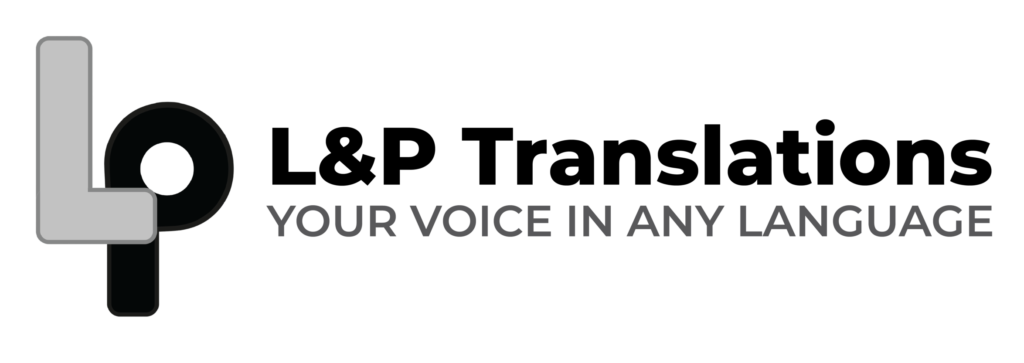Certified Translation Errors In Machine Translations: Why Accuracy Is Fundamental.

Machine translations, driven by artificial intelligence, have advanced, but challenges such as grammatical errors, vocabulary problems and loss of cultural nuances remain. In official translations, accuracy is essential to ensure legal authenticity. This article identifies common mistakes and highlights why companies should avoid relying solely on machine translation, highlighting legal risks and loss of client confidence.
CONTENTS
-
Advances in Machine Translation Recent developments 1.2. Impact on quality 1.3.
-
Common Errors in Machine Translations 2.1. Grammar and Structure 2.2. Vocabulary Problems 2.3.
-
The Importance of Accuracy in Official Translations 3.1. Legal documents and their relevance 3.2. Consequences of errors in official translations
-
Reasons to Avoid Machine Translation in Official Translation Companies 4.1. Legal risks 4.2. Loss of customer confidence 4.3. Non-compliance with regulations
-
Recommendations for Official Translation Companies Combination of technology and human expertise 5.2. Investment in precision
Machine translations have experienced significant advances in recent years thanks to artificial intelligence and natural language processing technology. However, despite progress, machine translations still present challenges and errors that can have a negative impact on the accuracy and quality of translated documents. In the field of official document translations, accuracy is essential to ensure the authenticity and legality of the translation. In this article, we will explore common errors in machine translations and why official translation companies should pay special attention to the quality of translations.
Despite advances in machine translation technology, the following categories of errors are common and can affect the accuracy of translations:
1. Grammar and Structure Errors
Machine translations often make mistakes in grammar and sentence structure. This can result in incoherent or poorly constructed sentences that make it difficult to understand the content.
2. Vocabulary Problems
Incorrect word choice is a frequent problem in machine translations. It can lead to inaccurate translation of technical or specific terms, which is especially problematic in official documents requiring precise terminology.
3. Ambiguity and Polysemy
Ambiguity is a challenge in machine translation, as words can have multiple meanings depending on the context. AI sometimes has difficulty determining the correct meaning of a word based on context.
4. Loss of Cultural Nuances
Machine translation can overlook cultural and contextual nuances that are critical to the understanding of a text. This is especially important in official documents that may be subject to specific cultural and legal regulations.
5. Lack of Coherence
Consistency between paragraphs and sections of a document is often lost in machine translations, making reading confusing and disjointed.
6. Errors in Names and Titles
Proper names and titles are often translated incorrectly, which can be especially problematic in legal and official documents where accuracy of identification is crucial.
The Importance of Accuracy in Official Translations
In the field of official document translations, accuracy is a fundamental requirement. Official documents such as birth, marriage, death certificates, legal contracts and academic documents are often used for legal, educational or immigration purposes. Any error in translation can have serious consequences, such as denial of a visa application, invalidation of a contract or loss of legal rights.
Accuracy is essential to ensure the authenticity of the translation and the integrity of the information contained in the document. A single error can lead to misunderstandings, legal disputes and administrative problems that can be costly and difficult to rectify.
Why Official Translation Firms Should Avoid Machine Translation
Given the importance of accuracy in official translations, translation companies should avoid relying exclusively on machine translation for several reasons:
Legal Risk
Inaccurate translations can result in significant legal problems. In cases of legal documents, an incorrect translation can lead to invalidation of a contract or loss of legal rights. Official translation companies are obliged to ensure the accuracy and authenticity of their translations, and machine translation does not always meet these standards.
2. Loss of Customer Confidence
Clients requiring official translations rely on the expertise and accuracy of translation services. Providing inaccurate translations to clients can undermine the company's trust and reputation.
3. Non-compliance with regulations
In many countries, there are regulations and standards governing official translations. Lack of accuracy and the use of machine translations can result in non-compliance with these regulations and legal sanctions.
4. Sensitive Documents
Official documents often contain sensitive and private information. Loss of privacy or exposure of confidential data due to translation errors can have serious legal and ethical implications.
In short, accuracy in official translations is critical, and machine translations present challenges that can jeopardize this accuracy. Official translation companies should avoid relying solely on machine translation and focus on combining technology with human expertise to ensure the quality and authenticity of legal and official document translations. Investing in accuracy is essential to meet legal standards and client expectations.
Glossary
-
Automatic translations: Automated translation process using artificial intelligence.
-
Accuracy: Accuracy and reliability in translation.
-
Official translations: Certified translation process for legal documents.
-
Legal risk: Possibility of facing legal consequences.
-
Regulations: Regulations and legal standards.
-
Sensitive documents: Private and confidential information.



